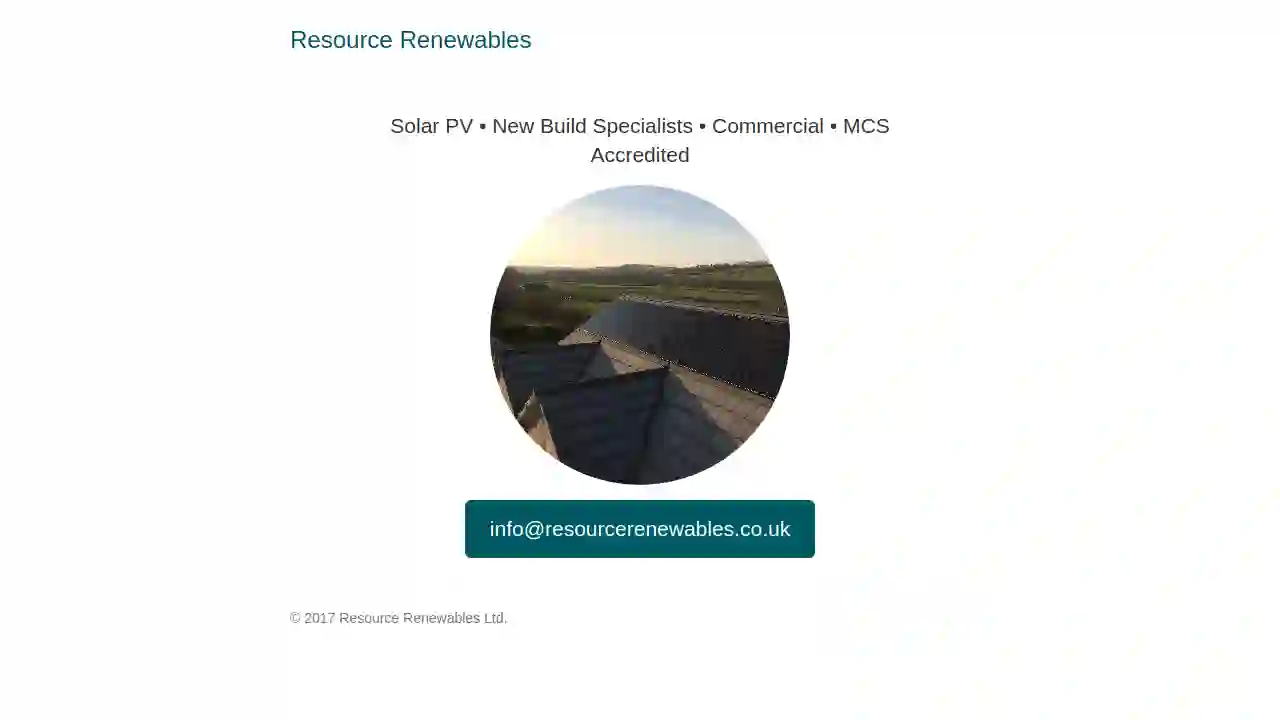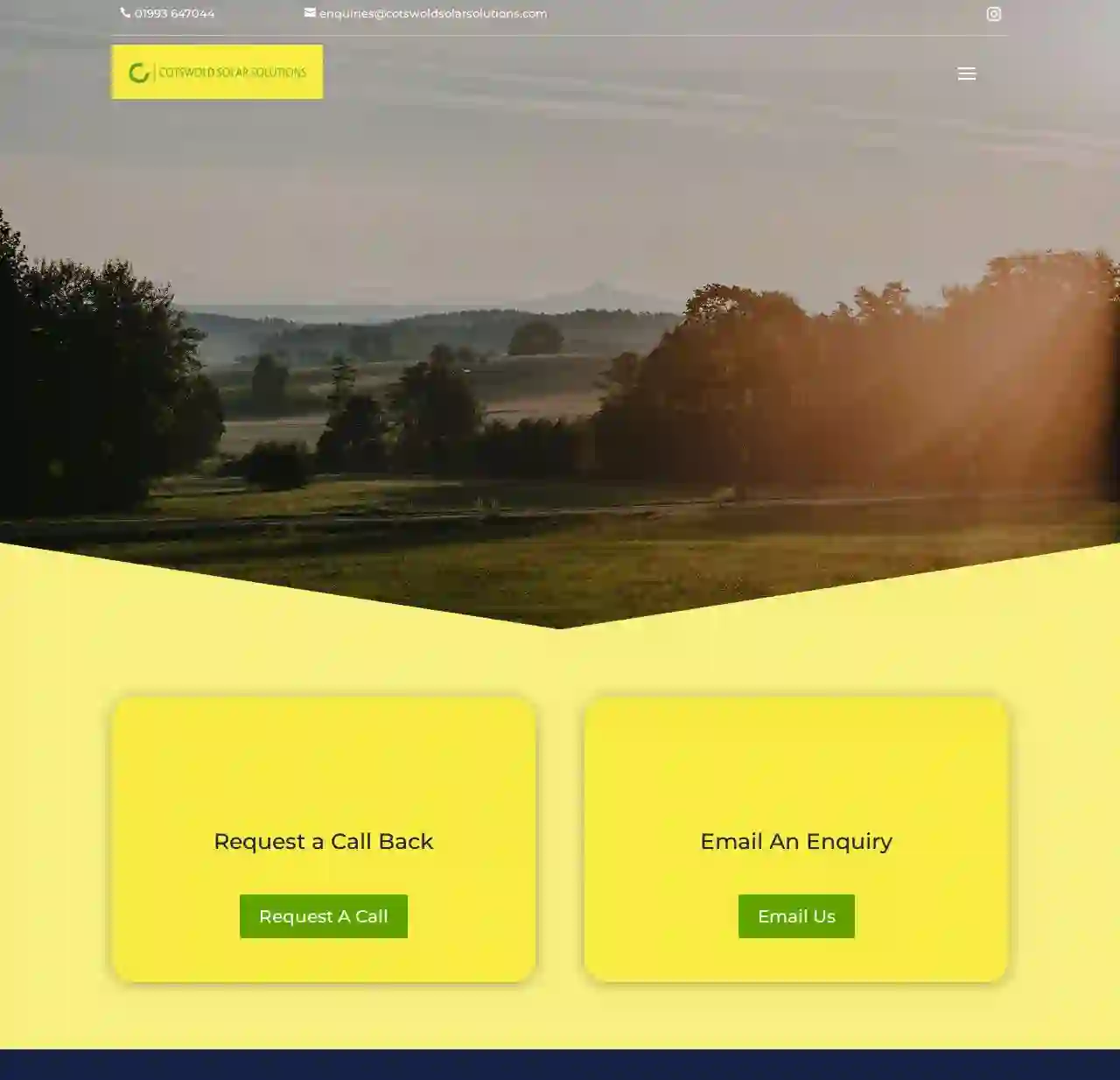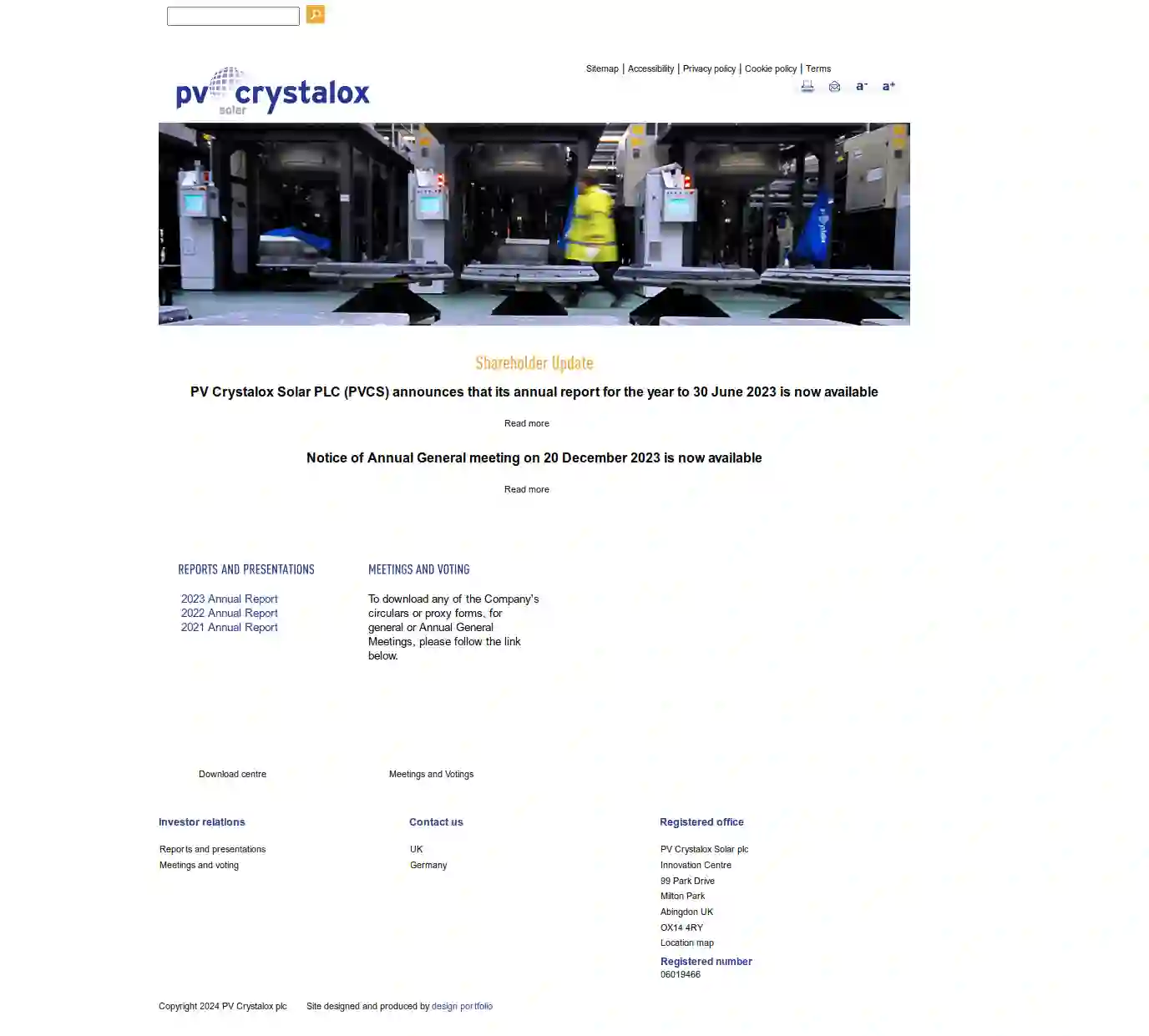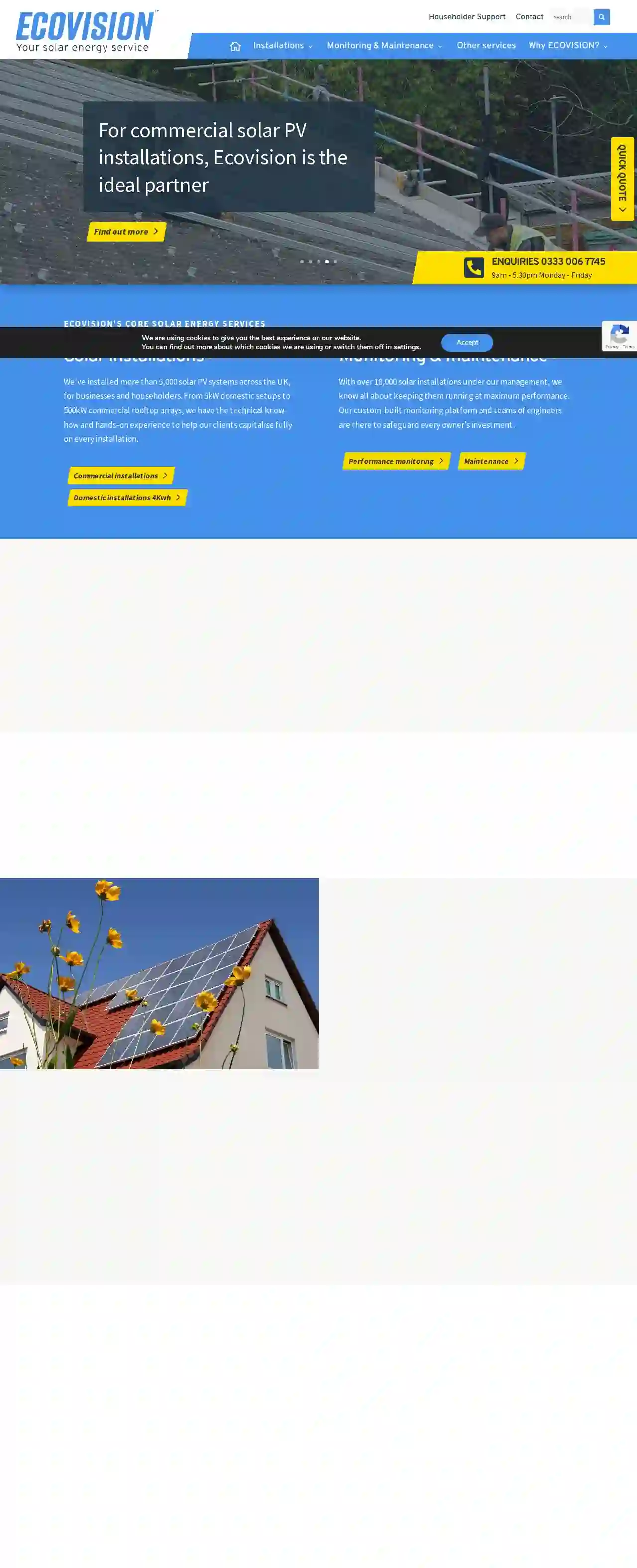Solar Installers Roundway
Find top Solar Panel Installer in Roundway
Receive 3 FREE Solar Company quotes for your project today! Compare profiles, reviews, accreditations, portfolio, etc... and choose the best service.

In Balance Energy (Swindon)
4.614 reviewsStratton Road, 2 Lotmead Cottages, Wanborough, SN4 0SN, GBWelcome to In Balance Energy, Solar PV System Design and Integration Specialists, Established 2007. Experts at diagnosing and repairing faults and cost effectively maintaining all things solar. Based in Swindon, our on-site solar service engineers can be called on to carry out any works related to solar PV in Central Southern England, including any related aspects involving roofing, construction or electrics, no job too big or too small. Solar Equipment Supplies for Trade, DIY and Retail, provided with exceptional support and training - Bespoke design and build services for off-grid, hybrid, larger and or more complex systems - We supply solar equipment including replacement inverters, batteries and mounting systems, to trade and self installers all over the UK.
- Services
- Why Us?
- Gallery
Get Quote
Resource Renewables Ltd
Bristol, GBResource Renewables is a solar PV specialist company that offers new build solutions for commercial clients. We are fully accredited by MCS and have been in business since 2017. Our mission is to provide high-quality solar PV solutions to our clients, ensuring a sustainable future for generations to come.
- Services
- Why Us?
- Accreditations
- Gallery
Get Quote
Solar4Good UK Ltd
London, UK, 123 Main Street, SW1A 1AA, GBSolar4Good is a leading provider of solar panel installation services for residential and commercial properties. With over 15 years of experience, we have established ourselves as a trusted and reliable partner for homeowners and businesses looking to switch to renewable energy. Our team of experts is dedicated to providing top-notch services, ensuring that our customers receive the best possible solutions for their energy needs. We are fully accredited and insured, and our commitment to quality and customer satisfaction is unparalleled.
- Services
- Why Us?
- Accreditations
- Our Team
- Testimonials
- Gallery
Get Quote
Sky Home Improvements
4.34 reviews1 The Clock House, Brize Norton Road, Carterton, OX18 3HN, GBOur mission is to help lead the energy transitions to green renewable sources, whilst helping the average consumer lower monthly bills. We are an accredited solar panel company based in the Cotswolds operating nationwide. We offer unrivalled customer service coupled with the world's leading renewable energy products. Our mission is to help lead the energy transition to green renewable sources, whilst helping the average consumer lower monthly expenditure. We are an accredited Solar Panel company based in Oxfordshire and operating nationwide. We offer unrivalled customer service coupled with the world's leading renewable energy products. Cotswold Solar Solutions will redefine your relationship with energy, minimise your carbon footprint and allow you to take control of your electricity costs.
- Services
- Why Us?
- Accreditations
- Gallery
Get Quote
Green Flare Ltd
4.762 reviews200 South Liberty Lane, Bristol, BS3 2TY, GBWelcome to Green Flare, where innovative ideas meet elegant engineering. With more than three decades of combined experience, we pride ourselves on the design and installation of bespoke renewable energy solutions for homes and commercial properties in Bristol and beyond. From solar panels and heat pumps to underfloor heating and battery storage, our team of designers and engineers marry high-end renewable technologies with unparalleled expertise to deliver elegant energy solutions. At Green Flare, we believe in a world in which innovation and sustainability converge, marrying elegant engineering with premium components to produce exceptional results. With the escalating costs of traditional energy, our solutions exist as intelligent alternatives to outdated technologies. By reducing reliance on conventional fuel sources, Green Flare bespoke systems decrease utility bills and increase immunity to future price fluctuations. As well as helping you to cut your carbon emissions and reduce your energy costs, we’ll use our MCS accreditation to grant access to government funding when appropriate. Decades of experience designing and installing elite renewable energy systems for commercial and residential properties have enabled us to foster long-standing relationships with world-leading manufacturers. This allows us to approach every project with an unfaltering attention to detail, developing solutions that are expertly tailored to your home or business. Our work is a testament to the belief that luxury should not come at the earth's expense. By investing in renewable energy systems for your home or commercial property, you are not just making a choice for today but investing in a cleaner future. Choose Green Flare for elite systems, seamless integration and unbeatable aftercare.
- Services
- Why Us?
- Accreditations
- Testimonials
- Gallery
Get Quote
LA Electrical Services | Solar & EV Charging
519 reviewsOffice 2, Main Road, Easter Compton, Bristol, GBSince 1997 we’ve been installing Sockets & Lights, Solar Power and EV Charge Points in Bristol & the surrounding areas. Skilled, Friendly Electricians, Quick Response, NICEIC & MCS Approved Contractor, 5 Star Service. Request a free quote or get in touch. We pride ourself on our workmanship and quality. We’ve built a reputation of work being completed to an exceptional standard and have hundreds of happy customers. See pictures and more reviews here. We're rated Excellent on Trust Pilot and 5 Stars by our customers on Google and Facebook.
- Services
- Why Us?
- Accreditations
- Our Team
- Gallery
Get Quote
Pv Crystalox Solar Plc
Innovation Centre, 99 Park DriveMilton Park, Innovation Centre99 Park DriveMilton ParkAbingdon, Abingdon, OX14 4RY, GBPV Crystalox Solar PLC (PVCS) is a leading provider of high-quality silicon wafers for the solar energy industry. With a rich history and a commitment to innovation, PVCS has established itself as a trusted partner for solar manufacturers worldwide. Our state-of-the-art manufacturing facilities and experienced team enable us to deliver exceptional products that meet the evolving needs of the market. We are dedicated to driving the growth of the solar industry by providing reliable and cost-effective solutions that contribute to a sustainable future. Our business is built on a foundation of technical expertise, operational excellence, and customer satisfaction. We continuously invest in research and development to enhance our product offerings and manufacturing processes. Our team of highly skilled engineers and technicians is committed to delivering superior quality and performance. We prioritize building strong relationships with our customers and understand their unique requirements. Our customer-centric approach ensures that we provide tailored solutions that meet their specific needs. PVCS is committed to responsible business practices and environmental sustainability. We strive to minimize our environmental impact through efficient resource utilization and waste reduction. We are also actively involved in initiatives that promote the adoption of renewable energy. We invite you to explore our website to learn more about our products, services, and commitment to excellence.
- Services
- Why Us?
- Gallery
Get Quote
Nextgen Bristol – Solar Panels
Unit 6 Old Foundry Business Park, Kidney Hill. Westerleigh., Westerleigh, BS37 8RS, GBNEXTGEN BRISTOL is a leading provider of next generation energy solutions, specializing in solar panels, home batteries, EV charging, and air source heat pumps. With over 10 years of experience in the industry, we are passionate about helping homeowners and businesses reduce their energy bills, carbon footprint, and reliance on the grid. We offer a wide range of high-quality products at competitive prices, all backed by long warranties and manufacturer guarantees. Our team of qualified experts is committed to providing excellent customer service and ensuring complete customer satisfaction. We pride ourselves on our efficient and reliable installations, with most products installed within a single working day. We are fully insured and operate across the South West of England, serving over 100 happy clients.
- Services
- Why Us?
- Gallery
Get Quote
JTD Group Ltd
562 reviewsGreat Park Road, 32 Equinox South, Bristol, BS32 4QL, GBBristol based Solar Panel Installers and Solar PV Specialists. APPROVED SOLAR INSTALLATION SPECIALISTS Based in Bristol, we install Solar PV systems, Battery storage and EV Charging for homes and businesses across the South West. Free Quote SOLAR PV SPECIALISTS – A PASSION FOR SOLAR Covering the South West, At JTD Group, we specialise in delivering top of the range solar, battery storage and EV Charging solutions. Save money on your electricity bills, protect your energy consumption against rising energy costs and investing in solar and solar storage. Accredited Installers Specialist Solar Panel Installation, as a leading Bristol based solar panel installer we install complete solar panel systems, including battery & solar PV. Solar Panels EV Charging Electric car charger installation, by Bristol based solar experts. Charge up your drive with EV charge points! Providing high quality installations to power your journey. Solar EV Charging Solar Battery Storage Save money on your energy bills and reduce your carbon footprint with solar battery. Solar battery storage along with solar panels offers a range of cost saving benefits. Battery Installation Solar Maintenance Solar panels are designed to be low maintenance. Ensure the longevity of your solar panels with our solar panel maintenance packages. Solar maintenance specialists. Solar Maintenance Solar PV Installation Fully qualified MCS & accredited solar PV installation specialists. Whether its solar PV for homes or solar PV for business we ensure the best solar installation. Solar PV Installation Electrical Services We are recommended electrical contractors in Bristol and Bath with a reputation for quality workmanship, reliability and providing a professional service. Electrical Services Talk to us today >
- Services
- Why Us?
- Accreditations
- Testimonials
- Gallery
Get Quote
Ecovision Asset Management Ltd
3.714 reviewsGloucester, GBWelcome to Ecovision, your solar energy service for businesses and households in the UK. Your business relies on solar energy. Let’s keep it running efficiently. Ecovision’s solar installations benefit householders as well as businesses. For commercial solar PV installations, Ecovision is the ideal partner. Your home deserves a cost-effective solar panel installation that lasts. Throughout the UK, Ecovision offers the finest end-to-end solar energy service – supported by our highly-praised customer service. For all enquiries or a FREE consultation/quotation call Ecovision today: GET A QUOTE 0333 006 7745 9am-5.30pm Monday-Friday Ecovision’s Core Solar Energy Services Solar installations We’ve installed more than 5,000 solar PV systems across the UK, for businesses and householders. From 5kW domestic setups to 500kW commercial rooftop arrays, we have the technical know-how and hands-on experience to help our clients capitalise fully on every installation. Commercial installations Domestic installations Monitoring & maintenance With over 18,000 solar installations under our management, we know all about keeping them running at maximum performance. Our custom-built monitoring platform and teams of engineers are there to safeguard every owner’s investment. Performance monitoring Maintenance Why Ecovision? Ecovision can now offer discounts for landlords owning multiple tenancy apartment buildings View case studies Our Sustainable World Solar power benefits you, your family and our environment. Our beautiful sun is key to our collective future Our History For your peace of mind – our accreditations Reference Links Equality Policy Human trafficking Policy Sitemap Contact Privacy Policy Follow Follow © Ecovision Assest Management Ltd. 2024 Quick Quote Get a Quote Please enable JavaScript in your browser to complete this form. Please enable JavaScript in your browser to complete this form. Name * First Last Postcode Layout Email * Phone Residential / Commercial Enquiry Residential Commercial Please tick the appropriate box New Installation Panel Cleaning O & M Bird Proofing Other Comment or Message Submit × We are using cookies to give you the best experience on our website. You can find out more about which cookies we are using or switch them off in settings. Accept Close GDPR Cookie Settings Privacy Overview This website uses cookies so that we can provide you with the best user experience possible. Cookie information is stored in your browser and performs functions such as recognising you when you return to our website and helping our team to understand which sections of the website you find most interesting and useful. Strictly Necessary Cookies Strictly Necessary Cookie should be enabled at all times so that we can save your preferences for cookie settings. Enable or Disable Cookies If you disable this cookie, we will not be able to save your preferences. This means that every time you visit this website you will need to enable or disable cookies again. Enable All Save Settings Powered by GDPR Cookie Compliance Privacy Overview This website uses cookies so that we can provide you with the best user experience possible. Cookie information is stored in your browser and performs functions such as recognising you when you return to our website and helping our team to understand which sections of the website you find most interesting and useful. Strictly Necessary Cookies Strictly Necessary Cookie should be enabled at all times so that we can save your preferences for cookie settings. Enable or Disable Cookies If you disable this cookie, we will not be able to save your preferences. This means that every time you visit this website you will need to enable or disable cookies again. Enable All Save Settings Powered by GDPR Cookie Compliance
- Services
- Why Us?
- Accreditations
- Gallery
Get Quote
Over 3,485+ Solar Installers on our platform
Our solar contractors operate in Roundway & surrounding areas!
SolarCompaniesHub has curated and vetted the Best Solar Installers arround Roundway. Find a top & reliable pro today.
Frequently Asked Questions About Solar Installers
- String Inverters: Connect multiple panels in a series (a 'string'). A cost-effective option for simple systems, but a single panel issue can affect the entire string.
- Microinverters: Attach to each individual solar panel, maximizing energy production even if some panels are shaded. They are more expensive but offer greater efficiency and monitoring capabilities.
- Power Optimizers: Similar to microinverters, but less expensive. They optimize the output of each panel and provide individual panel monitoring, but a central inverter is still required.
- Hybrid Inverters: Combine a solar inverter with a battery charge controller, allowing for seamless integration of battery storage.
How do solar panels work?
What are the different types of solar inverters?
What happens if my roof needs to be replaced after I install solar panels?
Do I need planning permission to install solar panels in UK?
How do solar panels work?
What are the different types of solar inverters?
- String Inverters: Connect multiple panels in a series (a 'string'). A cost-effective option for simple systems, but a single panel issue can affect the entire string.
- Microinverters: Attach to each individual solar panel, maximizing energy production even if some panels are shaded. They are more expensive but offer greater efficiency and monitoring capabilities.
- Power Optimizers: Similar to microinverters, but less expensive. They optimize the output of each panel and provide individual panel monitoring, but a central inverter is still required.
- Hybrid Inverters: Combine a solar inverter with a battery charge controller, allowing for seamless integration of battery storage.